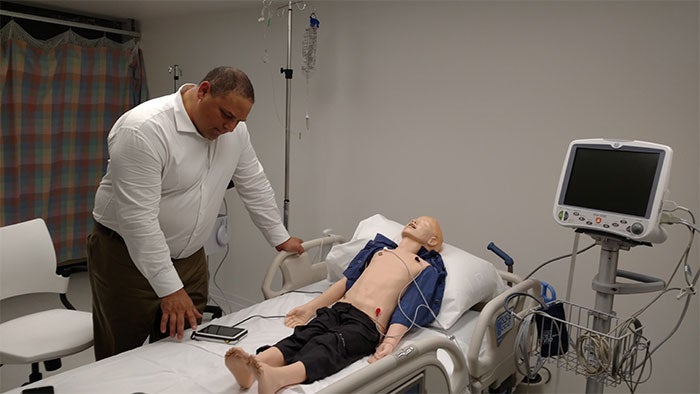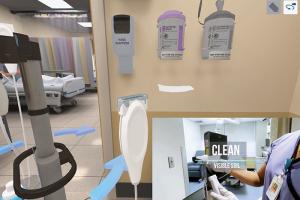Tech talk: Simulation stages, medical drones and specialty apps

The OSF Simulation Stage gives developers of new health technology a life-like patient setting in which to test their products.
Simulation center brings new ideas to life
Health tech incubator MATTER in partnership with OSF HealthCare launched the OSF Simulation Stage, a flexible simulation environment designed to allow early-stage health care technology innovators to test their products in real-world clinical environments and gain valuable feedback. This is MATTER’s second specialty environment dedicated to spurring collaboration between entrepreneurs and clinicians to advance health care. Its first, the AMA Interaction Studio, was opened in partnership with the American Medical Association.
The OSF Simulation Stage’s first configuration will model a hospital observation room and is the setting of a six-month challenge among developers to innovate technologies to improve the efficiency, quality and financial stability of hospital observation units.
“Simulation provides an invaluable opportunity for testing, training and iteration in a safe and controlled environment,” said John Vozenilek, M.D., vice president and chief medical officer for Jump Trading Simulation & Education Center, a partnership between OSF HealthCare and the University of Illinois College of Medicine at Peoria. “The friction involved in bringing new health care technologies to market is immense, and it’s often doubly hard for early-stage innovators to navigate the health care system to secure crucial pilots and gain direct feedback. The OSF Simulation Stage at MATTER eliminates this friction by accelerating the testing process and paving the way for outside evaluation to shape new ideas and iterative decisions that might not otherwise not be uncovered until much later in the process – or missed entirely."
Drones navigate the health care field
A recent study published in the Journal of Clinical Microbiology may help in the journey to make drones a regular fixture in health care.
NPR reports that Timothy Amukele, an assistant professor of pathology at the Johns Hopkins School of Medicine is leading a group called Medical Drones that has conducted experiments to determine if biological samples, such as blood samples, could withstand bumpy flights on drones and still be suitable for lab tests. The studies and follow-up analyses deemed drone transport safe for samples containing microbes and for donated blood.
While the study helps in the argument to use drones for medical use, other logistical and safety concerns remain, such as where to land drones or how often they would need new batteries.
Click below to view a video of one of the group's drone flights. And access their research here.
Drone Transport of Microbes in Blood and Sputum Laboratory Specimens from Medical Drones on Vimeo.
Hospital app guides patients to the right care
The University of Miami Health System’s new Lennar Foundation Medical Center is working with Gozio Health to develop a mobile health strategy that includes a hospital-branded, indoor navigation app for smartphones.
“The opening of the Lennar Foundation Medical Center will bring state-of-the-art technology to every aspect of patient care,” says Ben Riestra, chief administrative officer of the center. “Gozio Health’s mobile platform is another example of how we will leverage the latest technological solutions to improve the patient experience and increase convenience for all visitors to the new medical center.”
The app provides step-by-step directions to any destination inside the Lennar Foundation Medical Center as well as lists all of the facility’s services and amenities. The medical center will house the University of Miami Health System’s premier services, including the Sylvester Comprehensive Cancer Center and Bascom Palmer Eye Institute, UHealth Sports Performance and Wellness Institute, outpatient surgery, men’s and women’s health, cardiology, diagnostic imaging, neurology and other specialties.




